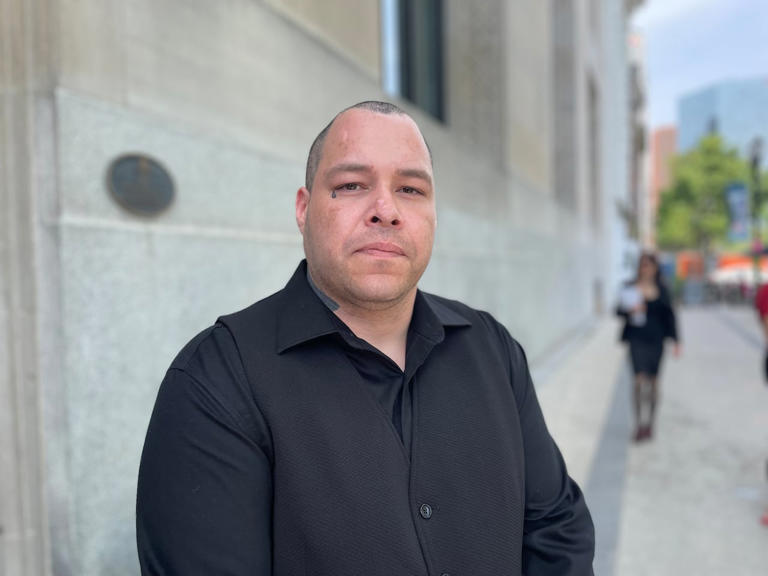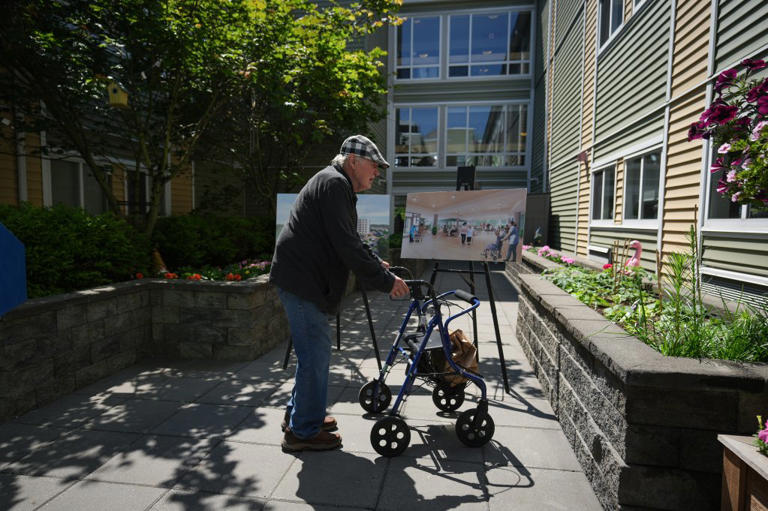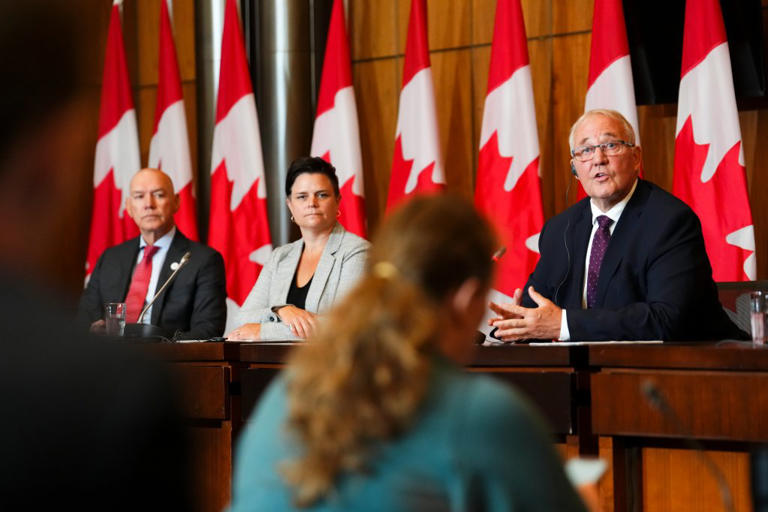Story by Jenna Benchetrit • CBC - Jul 4, 2023
Shoshona Kish — the Ojibwe-Anishnaabe artist who forms one half of the Indigenous musical duo Digging Roots — remembers the moment that lit a fire in her.
While on tour with her bandmate and husband Raven Kanatakta, the musicians finished a set at the Glastonbury Festival in England with a traditional round dance.
Their son — who'd been travelling around the world with them as they toured — was in awe, having watched several thousand people participate in the custom.
"After the show he was so excited and he said, 'You know, I can see this happening with 40,000 people someday,'" Kish said.
That unwavering belief in Indigenous music and artists led Kish and her business partner and fellow musician Amanda Rheaume to found Ishkōdé Records, one of several Indigenous-owned record labels that have emerged across Canada in the last few years.
"That's what I have my eyes set on as a metaphor that [we're] going to continue to grow this," she added. "We're going to continue to find each other from all of our communities and support all of these gorgeous stories that are being told."
The music industry in Canada is more hospitable than ever to Indigenous artists, partly due to an emergence in recent years of Indigenous-owned infrastructure committed to managing and marketing people from the community, according to artists, label owners and industry leaders.
From Ishkōdé Records and Red Music Rising in Toronto, to Land Back Records in Vancouver — plus Hitmakerz, a label specializing in Inuit musicians with offices in Iqaluit, Toronto and Ottawa — Indigenous musicians are building their own foundation within Canada's music industry after years of feeling excluded from or limited by the system's unspoken glass ceiling.

Digging Roots pose with an award for Contemporary Indigenous Artist of the Year during the Juno Awards in Edmonton on Saturday, March 11, 2023.
(Jason Franson/The Canadian Press)© Provided by cbc.ca
Labels born out of necessity
Launched in June 2021, Ishkōdé Records was born out of necessity: when Rheaume and Kish were up-and-coming musicians, they said the lack of supports for Indigenous artists compared to their non-Indigenous counterparts was stark.
"The journey of being an artist and moving in different music spaces, it was just so painfully obvious that there was such a big gap [between] the Indigenous artists and ... non-Indigenous artists," said Rheaume, a Métis singer-songwriter.
"The goals are really to bridge that gap, to shatter glass ceilings and open up opportunities for Indigenous artists that have been systematically and routinely left out or shut out of spaces and conversations and career opportunities."
Related video: How Indigenous-owned record labels are changing Canadian music (cbc.ca) Duration 2:27 View on Watch
Ishkōdé Records partnered with Universal Music Canada in 2021 for a distribution deal meant to amplify Indigenous voices.
Kish, for her part, felt that the competitive nature of the music industry made it exceedingly difficult for Indigenous artists who were subject to quotas or tokenism when applying for opportunities.
"ForIndigenous folks, there was often just the one spot at the festival or there was the one opportunity," she said. Once somebody got it, it meant that everyone else was back at square one — and it's generally still the case that non-Indigenous people are deciding which Indigenous voices are heard in mainstream music, she added.
"I think that there are all of these sounds and all of these ideas that perhaps, you know, a major label doesn't know how to sell yet and perhaps mainstream radio doesn't trust that their listeners will want to hear it," Kish said.
"We all deserve to hear more and I think it will light up a whole bunch of dark spaces when we get to hear all of those stories and sounds."
Support rooted in community
Alan Greyeyes prefers to think of himself as a helper — not a manager. Based in Winnipeg and a member of the Peguis First Nation, Greyeyes is the director of Sākihiwē festival, an annual Indigenous arts and music event. He also runs a talent management agency to support Indigenous artists.
"I think [that] a big part of what we do on the Indigenous side of the music industry is really figure out ways to best support the development of artists, but also the strengthening of their families. And sometimes the existing norms within the music industry kind of conflict with how we support Indigenous families," he said.
More recently, a steady stream of Indigenous artists have been receiving more exposure through music festivals, radio play, and institutional recognition like the Juno Awards or the Polaris Prize.

Aysanabee performs at the Summer Solstice Indigenous Music Awards in Ottawa on June 6, 2023. He was the first act signed by Ishkōdé Records.
(Courtesy of the SSIMAs)
Jeremy Dutcher has won both the aforementioned prizes. Aysanabee, the first act signed by Ishkōdé, is on the 2023 Polaris longlist. Acts like The Halluci Nation and Snotty Nose Rez Kids are headlining festivals and nabbing nominations and wins at the Junos. Artists like these, who have successfully transitioned from discovery acts to headliners, can sell tickets, Greyeyes said.
"I think there's still a long way to go in terms of just challenging stereotypes across the board," Greyeyes said. "We encounter racism in almost every part of the work that we do in the music industry."
"When the artists are in partnership [and] are working with people that understand their struggles and how far they've come, I think it just becomes a much healthier relationship," he said.

'As Indigenous people, we have to go through crazy things, like people not believing our stories. There's large groups of people who don't believe our pain,' said Jeremiah Manitopyes, known by his stage name Drezus.
(Julie Debeljak/CBC)© Provided by cbc.ca
Jeremiah Manitopyes, known by his stage name Drezus, is a Plains Cree artist from Saskatchewan. He's released past records with his group Team Res Official through a label, but is now an independent solo artist. Nothing is more important to an artist's livelihood than community support, he said.
"As Indigenous people, we have to go through crazy things, like people not believing our stories. There's large groups of people who don't believe our pain," he added.
"We have to take care of each other in a different way," he said. "I feel like if there's Indigenous people involved at any level of industry that you're participating in as an Indigenous person, there's just … more understanding about what we've been through and what it took to get there."
Jeremiah Manitopyes, known by his stage name Drezus, is a Plains Cree artist from Saskatchewan. He's released past records with his group Team Res Official through a label, but is now an independent solo artist. Nothing is more important to an artist's livelihood than community support, he said.
"As Indigenous people, we have to go through crazy things, like people not believing our stories. There's large groups of people who don't believe our pain," he added.
"We have to take care of each other in a different way," he said. "I feel like if there's Indigenous people involved at any level of industry that you're participating in as an Indigenous person, there's just … more understanding about what we've been through and what it took to get there."











